Just like people, cats are all unique. Some cats love to go outside, others barely fit a paw through the cat flap, and still others can't go out at all, so wherever your cat spends his time, make sure he's safe. safe and happy.
This guide will help you determine what is best for your feline companion and suggest ways to ensure a good quality of life in their home environment. Whether your cat only lives indoors or also has access to the outdoors.

Ideally, all cats should have access to the outdoors to express their natural behavior and, in France, the majority of people let their cats outside. However, in urban areas there can be large numbers of cats, each with a small territory, and many people choose to keep their cats indoors.
Additionally, it is recommended to keep some cats indoors for their own good. Cats have a natural tendency to explore ; allowing them access to the outside world provides mental stimulation and reduces stress. If they are kept indoors only, some additional considerations are recommended for their home.
Advantages of the exterior
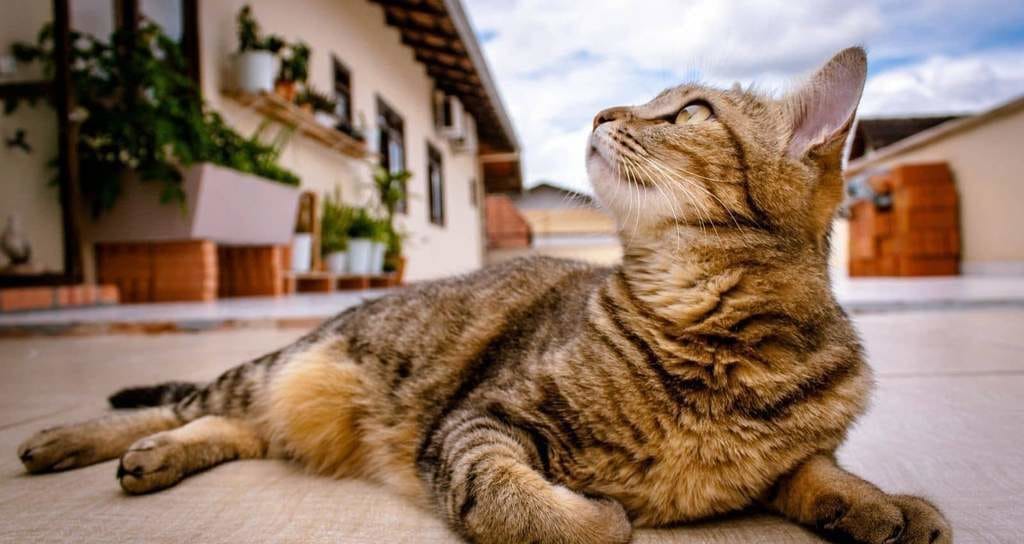
A larger territory
Allowing your cat access to the outdoors not only increases the space they have available, but also the variety of environment.
Natural behavior
Cats with access to the outdoors can express their natural behavior and do so in a more “acceptable” setting for the owner. For example, scratching and splashing are normal behaviors for cats and these traits often go unnoticed by owners of cats with access to the outdoors.
Rodent Control

Cats can help keep unwanted rodents at bay while also expressing an important natural cat behavior. The hunting sequence of stalking and catching prey actually releases endorphins or "happy hormones" in the cat's brain. Hunting behavior is not influenced by hunger - many cats with enough food will still want to hunt.
An interesting and stimulating environment
The external environment is a complex mixture of different smells, sights, sounds, tastes and textures, which is constantly changing. It is particularly stimulating and interesting for the cat's extraordinary senses and provides important mental training.
Exercise
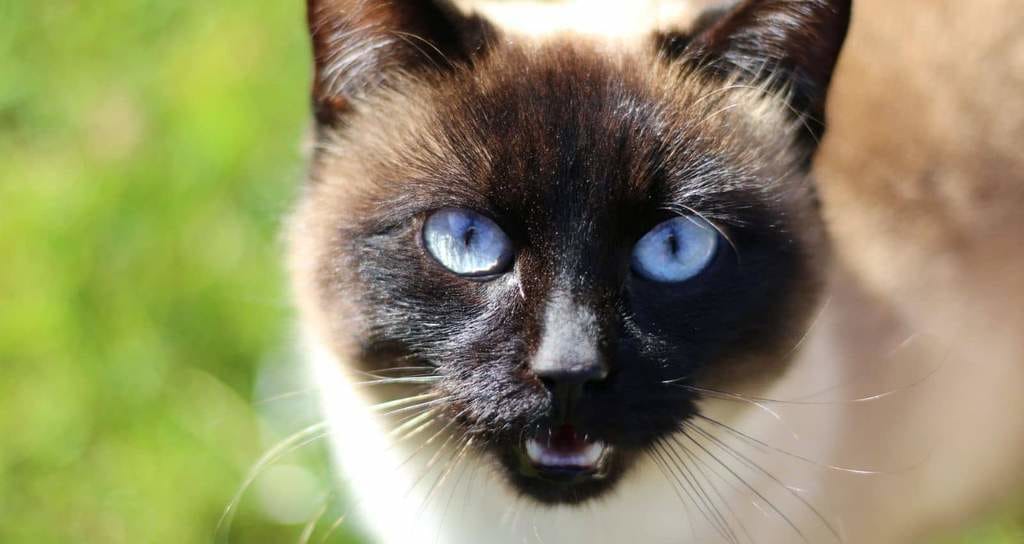
Cats with access to the outdoors can exercise more easily, whether by hunting, climbing trees and fences, or simply having extra space to use. Cats have great agility and practicing different types of exercises helps keep their muscles toned . Active cats are much less likely to become obese and suffer from associated health problems.
Allows you to escape the house if necessary

Sometimes cats need personal space and the opportunity to escape from anything they perceive as stress or threat. This could include conflict with other cats or other pets in the house, construction in the house, or unknown visitors in the house.
Unrestricted access to the outdoors, for example through a cat flap, provides an escape route. Microchip or magnetic cat flaps can help keep your cat safe by preventing neighboring cats from entering your home.

Risks of letting your cat go outdoors
Injuries
Many cats are injured or killed on the road each year. Often, these cats are young - less than a year old - and some studies show that road accidents occur more at night. Cats can be injured or killed not only on busy roads, but also on quiet country roads where only a few cars pass and may surprise a cat.
It is believed that cats do better on roads that are constantly busy than on those that are only used during rush hour. Cats can also be injured by contact with other cats , dogs and humans. Fighting can be reduced by neutering, but fights can still occur.
These fights often happen when a new cat moves into the neighborhood. Many cats who share their territory learn to "timeshare," so that one of them uses the area in the morning and the other in the afternoon.
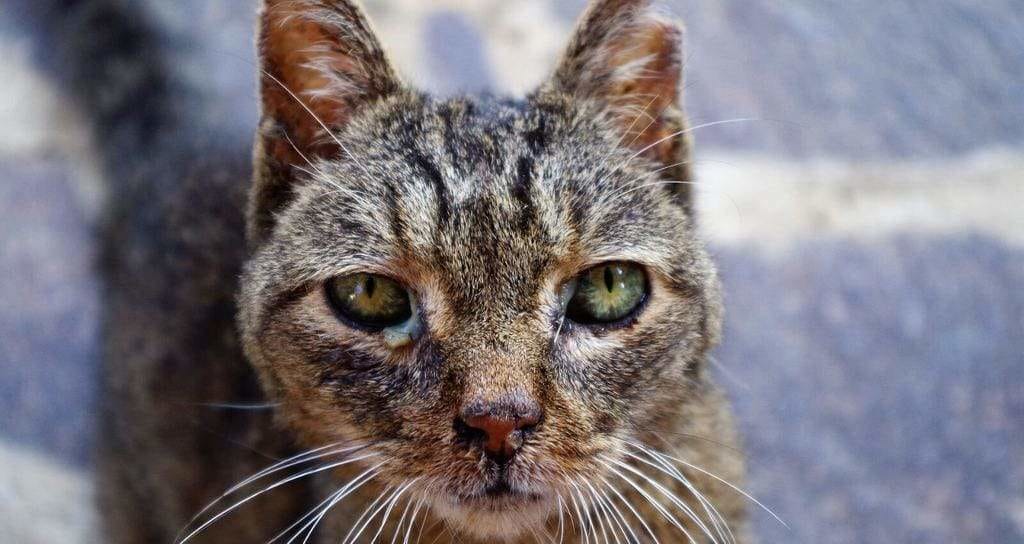
Disease
Cats can contract infectious diseases through contact and fighting with other cats, as well as the external environment. Vaccination can protect your cat against many of these diseases.
Parasites
Cats can get parasites such as fleas, ticks and various internal worms. Consult your veterinarian about how to prevent and treat parasites . Remember that indoor cats can also be susceptible to these parasites if not treated regularly.

Loss
Cats can go missing for a variety of reasons, such as if they got lost or stuck in a garden shed or garage, or if they moved in with someone else. Cats are sometimes fed by people who mistake them for stray animals, or are handed over to charities.
Microchipping your cat is important and allows you to find your cat if it goes missing. Before you let your cat out for the first time, make sure she has adjusted to her new home, whether she's new to you or you've recently moved.
Outdoor poisons

If you think your cat has ingested poison, seek emergency veterinary attention. Do not wait for signs of ill health , as a delay of one hour can cost your life. Common poisons that cats may come into contact with are slug pellets, garden chemicals, antifreeze, and poisons for rodent control, including ingesting poisoned prey . Outdoor chemicals should be stored out of reach. There are a number of garden plants that can be harmful or toxic to cats. Remember that there are also chemicals and houseplants that can pose a risk.
Minimizing the risks for an outdoor cat

Before you worry about the risks of letting your cat outside, remember that there are many ways to minimize them.
- Keep your cat indoors at night to protect it from road hazards. A quick-release reflective or fluorescent collar can help make it visible, especially during the winter months when darkness falls earlier. However, the collars themselves are not without risk, so regularly check that they fit properly.
Two fingers must fit perfectly between the collar and the cat's neck and the collar must have a quick release system to prevent your cat from becoming attached to it or its paw from being trapped. Collars with tags are also not a permanent means of identification.

- Collared tracking devices are a popular idea for tracking your cat, but the welfare implications need to be considered - size, weight, and any risk of the quick-release collar getting stuck.
Consideration should also be given to the practicality or usefulness of these devices, including battery life, geographic range , how tracking data is obtained, and whether that they are not permanent.

- Make sure your cat is sterilized to reduce wandering.
- Treat your cat regularly against fleas and worms and make sure he is up to date with his vaccinations. Consult your veterinarian for more information
- If you are concerned about your cat going outside, you may want to consider fencing your garden to give them a safe space to get some fresh air.
Cats and wildlife
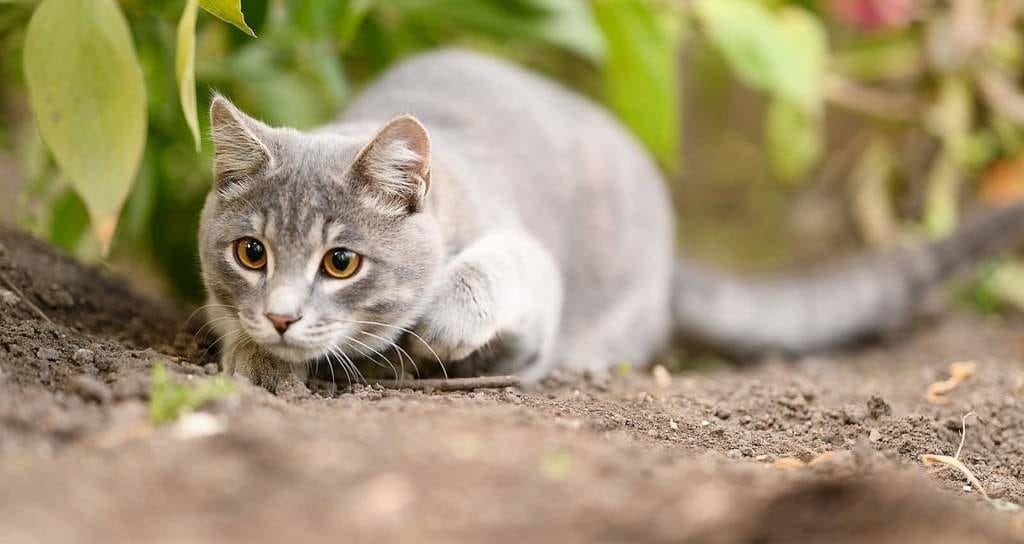
Cat hunting behavior varies between cats. Some cats are prolific hunters while others catch nothing at all. There is no evidence that cats impact the bird population, as they usually catch sick or weak birds.
Here are some steps you can take to help minimize your cat's hunting of birds in the garden:
- you can always feed the birds using a table or feeder high up, away from any platforms that a cat could use to pounce on them.
Research indicates that feeding birds can actually reduce the number of birds caught by cats , because the more birds there are, the greater the chance that a cat will be spotted and the birds will launch. a warning.
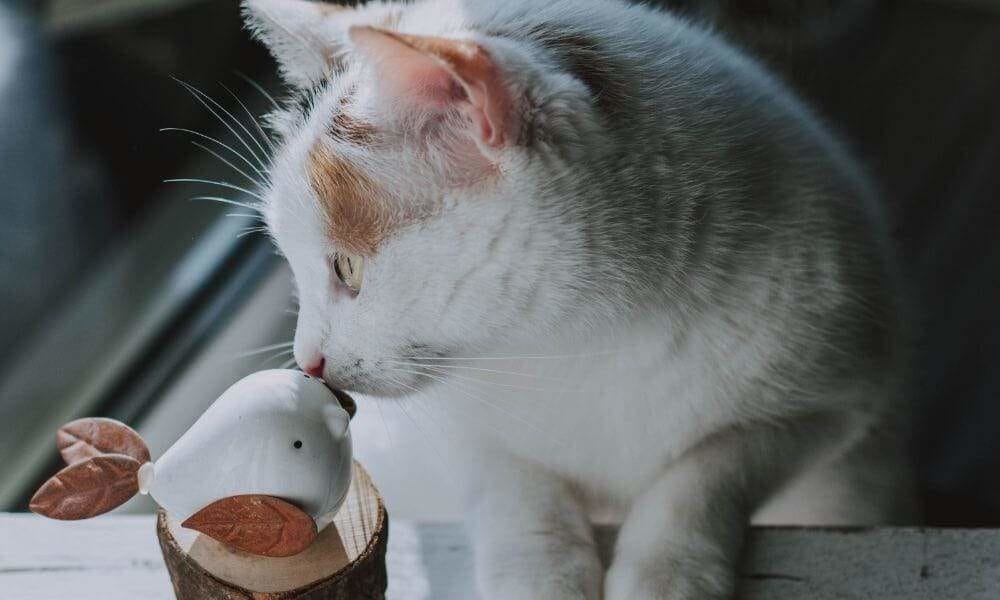
- placing an uncomfortable surface around the base will prevent cats from sitting under it
- make the table support slippery to prevent cats from climbing it - a metal post is a good option
- place the nest boxes so that cats cannot reach them
- if possible, keep your cat indoors early in the morning and evening , when the birds are most active.
Optimize your outdoor environment for your cat

It can be difficult to keep your cat within the confines of your garden, but you should encourage them to stay close to your home to ensure their safety. So what can you do? Setting up a cat-friendly garden can help.
Provide a welcoming toilet area
Cats like soft places to bury their feces and will be attracted to recently dug up dirt, sand or gravel. To prevent them from dirtying your neighbors' flower beds, you can try the following:

- provide them with a litter box in the house
- provide them with their own toilet area in the garden , in an isolated and sheltered place, on fine, well-dug ground. You can add cat litter to encourage him to do his business there.
Make sure it is dug regularly so that it remains hygienic and soiled materials decompose naturally. Make sure he is placed in a private place where he feels safe.
Fence
Cats are great climbers and will jump over most fences. However, a two meter high slatted fence, accompanied by a hedge parallel to the fence, will encourage your cat to stay in your garden . A net, taut wire or string can be placed over the fence to further deter it, but make sure your cat cannot become entrapped or injured.

Plant
You may consider dedicating a corner of your garden to your cat, away from wild animal feeding or nesting areas. In this space you can plant any plants that are suitable for cats, such as catnip (Nepeta cataria) , mint, cat thyme ( Teucrium marum ) and lavender. A longer patch of grass can make a soft bed, and cats can also nibble on it to help cough up hairballs.
Plants - without thorns - can be placed to give your cat a shady place to lie down on hot, sunny days, while wooden logs make excellent outdoor scratching posts. Many cats feel threatened in exposed spaces, so make sure your cat has plenty of places to hide and rest in the garden.
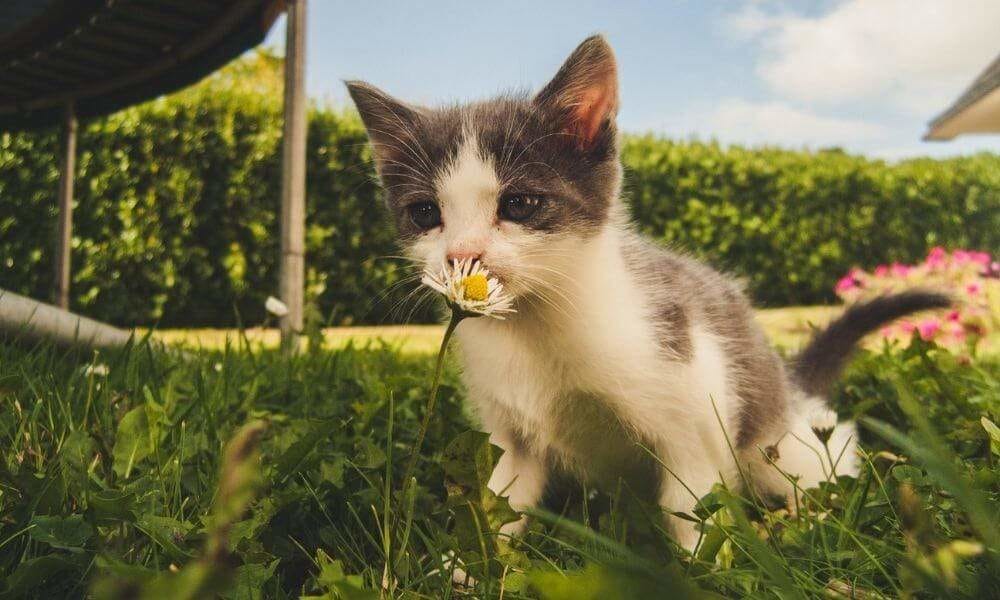
The other cats
If your cat is nervous about going outside, place potted plants or other items just outside the cat flap to provide hiding places she can use to survey the area. A magnetic or microchip cat flap can prevent neighbors' cats from entering your home.
To discourage other cats from entering the garden - try clapping your hands or using a soft water gun. Try to discourage other cats from entering or overlooking your garden - sheds and walls are good places - as this can be very threatening to anxious cats.

Here are all our tips for keeping your cat safe outdoors.